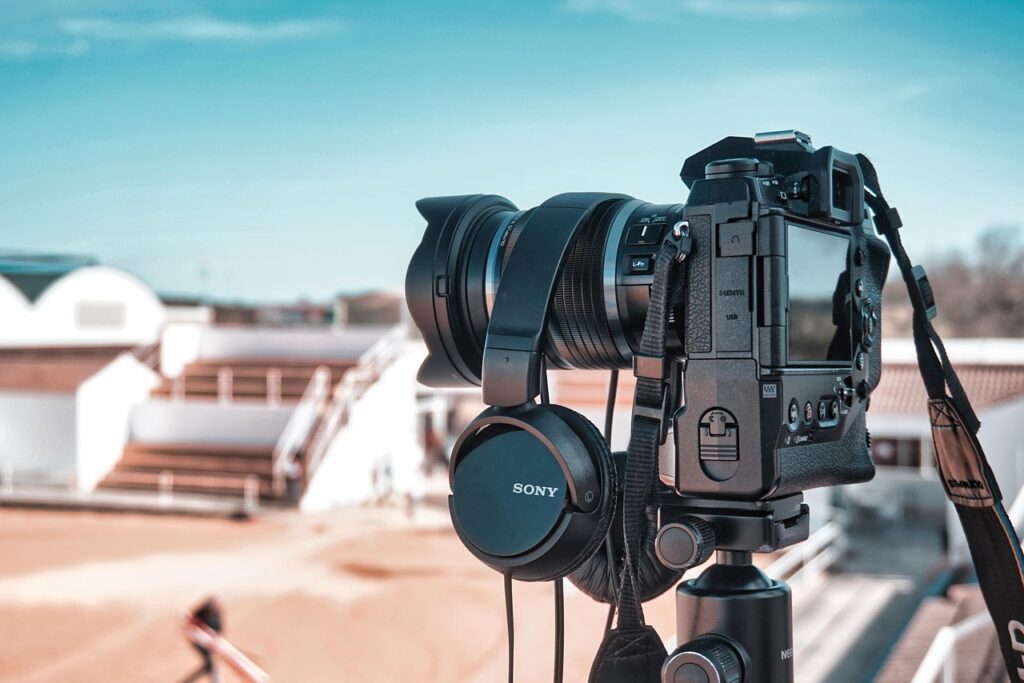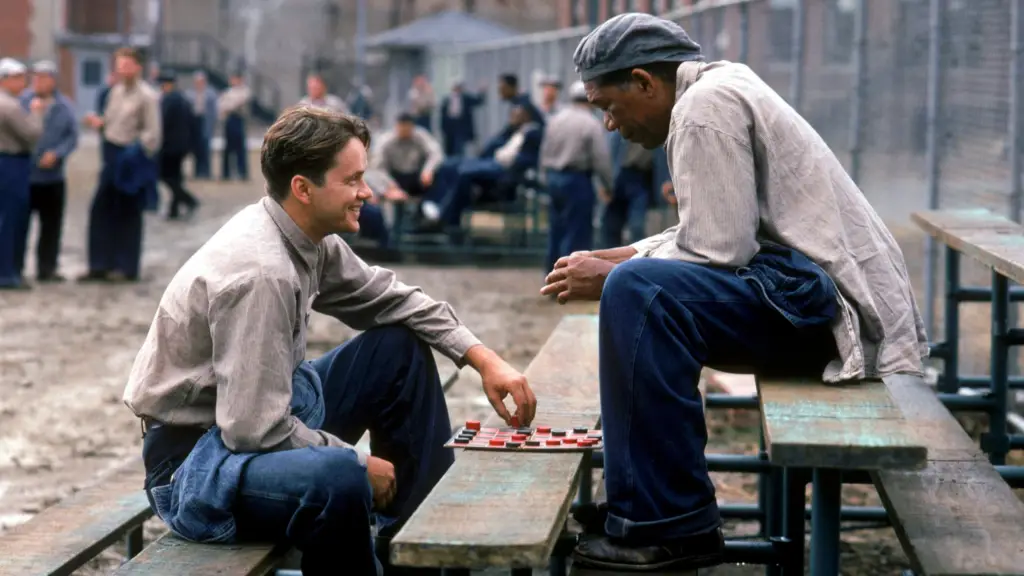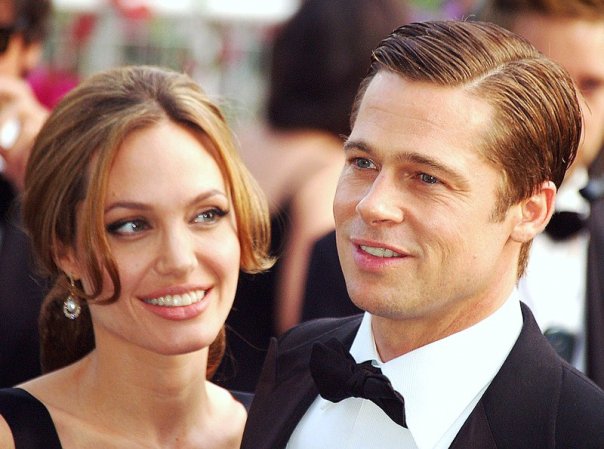
Angelina Jolie, an individual whose name resonates globally, has forged a career distinguished not only by an impressive array of cinematic achievements but also by a profound and unwavering commitment to humanitarian causes. Her journey, marked by both personal adversity and public triumph, has seen her evolve from a compelling screen presence into a dedicated advocate on the international stage, earning accolades for her artistry while simultaneously championing human dignity.
This extensive profile delves into the foundational experiences and pivotal career shifts that have shaped Jolie’s unique trajectory. It examines how her early life, marked by challenges and a singular artistic drive, paved the way for a remarkable ascent in Hollywood, ultimately culminating in a deep-seated engagement with the most pressing global issues of our time. Her story illustrates a continuous process of growth, adaptation, and an increasing focus on impactful global citizenship.
From her initial forays into acting to her groundbreaking humanitarian work, Jolie’s narrative is one of transformation. We will explore the critical junctures that propelled her into the spotlight, the roles that defined her cinematic legacy, and the transformative moments that ignited her passion for humanitarianism, establishing her as a figure of significant influence far beyond the confines of the entertainment industry.
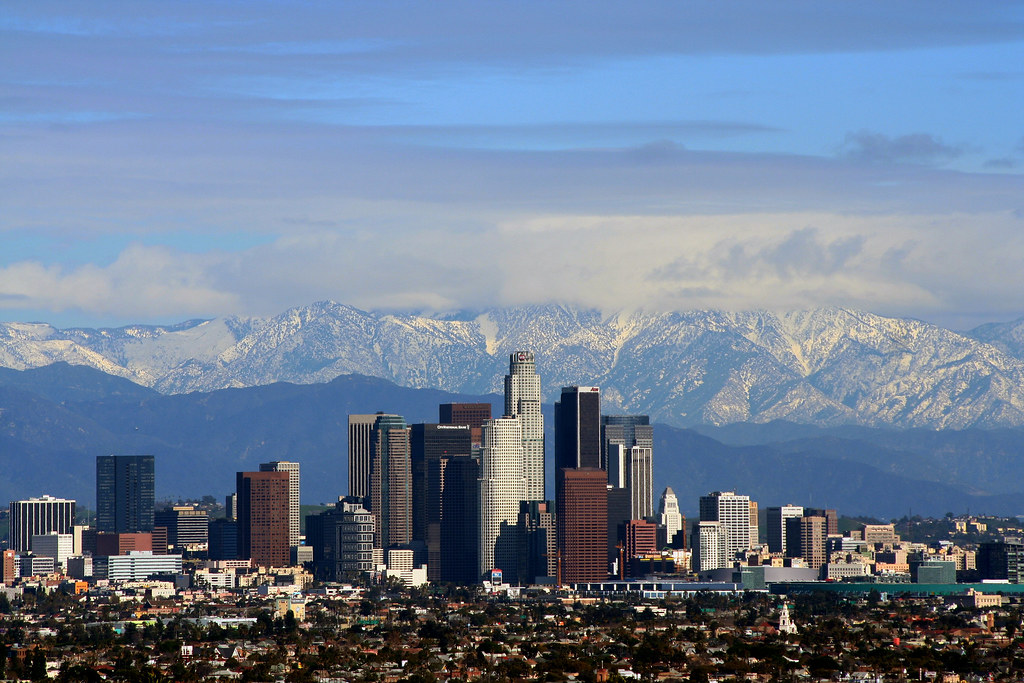
1. **Early Life and Formative Experiences** Born Angelina Jolie Voight on June 4, 1975, in Los Angeles, California, to actors Jon Voight and Marcheline Bertrand, Angelina Jolie’s early life was marked by complexities that would profoundly influence her later years. Following her parents’ separation in 1976, she and her brother, James Haven, were raised by their mother, who consciously set aside her own acting aspirations to prioritize her children’s upbringing. This familial dynamic, coupled with a lifelong dysfunctional relationship with her father, began when Voight left the family when Jolie was less than a year old, and their subsequent interactions were often sporadic and public.
As a child, Jolie often watched films with her mother, a practice that, more than her father’s successful career, sparked her interest in acting. Despite this early inspiration, her formative years were far from smooth. She attended Beverly Hills High School, where she felt isolated among more affluent peers, experiencing teasing for her thin physique, glasses, and braces. These feelings of alienation led her to transfer to Moreno High School, an alternative institution, where she embraced a self-described “punk outsider” identity, characterized by all-black attire, moshing, and engaging in knife play with a live-in boyfriend.
During this period, Jolie also struggled significantly with her emotional and mental well-being. She dropped out of acting classes, briefly aspiring to become a funeral director and taking at-home courses on embalming. As a teenager, she found it difficult to connect emotionally with others, leading to self-harm, which she later described as a “ritual of having cut myself and feeling the pain, maybe feeling alive, feeling some kind of release, it was somehow therapeutic to me.” She grappled with insomnia and an eating disorder, and by age 20, had used “just about every drug possible,” particularly heroin.
The depth of her struggles extended to episodes of depression and two suicide attempts at ages 19 and 22, including an attempt to hire a hitman. At 24, she experienced a nervous breakdown, requiring a 72-hour admission to UCLA Medical Center’s psychiatric ward. A crucial turning point came two years later, with the adoption of her first child. Jolie later reflected on this transformative moment, stating, “I knew once I committed to Maddox, I would never be self-destructive again,” marking a significant shift towards stability and purpose in her life.
Read more about: JD Souther: Remembering the Master Songwriter Who Shaped ’70s Country-Rock and Beyond
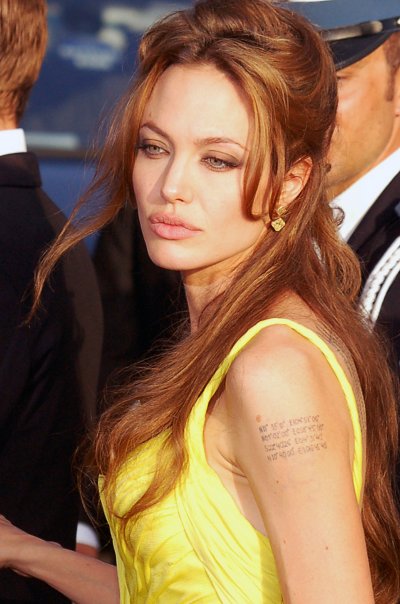
2. **Initial Forays into Acting** Angelina Jolie committed to acting professionally at the age of 16, yet her early attempts to secure roles were often met with resistance. She frequently faced rejections, with auditors commenting that her demeanor was “too dark.” Before her professional film career took off, she honed her craft by appearing in five student films directed by her brother during his time at the USC School of Cinema-Television. These early experiences provided a foundational understanding of the filmmaking process and the demands of performance.
Her visibility expanded through appearances in several music videos, showcasing a burgeoning screen presence. Notable among these were Lenny Kravitz’s “Stand by My Woman” (1991), Antonello Venditti’s “Alta Marea” (1991), The Lemonheads’s “It’s About Time” (1993), and Meat Loaf’s “Rock and Roll Dreams Come Through” (1993). In 1993, she also graced the cover of the Widespread Panic album *Everyday*, indicating her growing recognition in the broader entertainment landscape.
Jolie officially began her professional film career in 1993, securing her first leading role in the direct-to-video science-fiction sequel *Cyborg 2*. In this film, she portrayed a near-human robot designed for corporate espionage and assassination. Her experience on this project, however, proved disappointing, leading her to step away from auditions for an entire year due to her dissatisfaction with the outcome and the quality of the production.
Following a supporting role in the independent film *Without Evidence* (1995), Jolie starred in her first major studio film, *Hackers* (1995). Although *Hackers* did not achieve commercial success at the box office, it later developed a significant cult following after its video release. Janet Maslin of The New York Times notably observed that Jolie’s character in the film “stands out … because she scowls even more sourly than [her co-stars] and is that rare female hacker who sits intently at her keyboard in a see-through top,” a role widely considered her breakthrough.
Her subsequent work included appearances in the modern-day *Romeo and Juliet* adaptation *Love Is All There Is* (1996) and the road movie *Mojave Moon* (1996). In *Foxfire* (1996), she took on the role of Legs, a drifter who galvanizes four teenage girls against a sexually harassing teacher. Jack Mathews of the Los Angeles Times praised her performance, noting, “Jolie, Jon Voight’s knockout daughter, has the presence to overcome the stereotype,” establishing her as a talent capable of imbuing complex characters with depth, even in challenging narrative structures.
Read more about: Chuck Norris’s Iconic 80s Filmography: Ranking All 13 Essential Movies for Every Fan

3. **Rise to Prominence Through Television and Drama** Angelina Jolie’s career trajectory significantly improved in 1997, marking a pivotal turn towards more critically acclaimed roles. She earned a Golden Globe Award for her performance in TNT’s *George Wallace*, a biographical film chronicling the life of segregationist Alabama Governor George Wallace, portrayed by Gary Sinise. Jolie’s portrayal of Wallace’s second wife, Cornelia Wallace, was highlighted by Lee Winfrey of The Philadelphia Inquirer as a standout performance, contributing to the film’s positive critical reception. This role also garnered her a nomination for a Primetime Emmy Award for Outstanding Supporting Actress in a Miniseries or a Movie.
The following year, Jolie delivered another powerful performance as supermodel Gia Carangi in HBO’s *Gia* (1998). This television film depicted Carangi’s tumultuous life and career, marked by heroin addiction, and her eventual decline and death from AIDS in the mid-1980s. Vanessa Vance of Reel.com retrospectively lauded Jolie’s portrayal, stating, “Jolie gained wide recognition for her role as the titular Gia, and it’s easy to see why. Jolie is fierce in her portrayal—filling the part with nerve, charm, and desperation—and her role in this film is quite possibly the most beautiful train wreck ever filmed.” This role secured her a second consecutive Golden Globe Award and another Emmy Award nomination, in addition to her first Screen Actors Guild Award.
In a testament to her immersive approach to acting, Jolie, adhering to Lee Strasberg’s method acting principles, often remained in character between scenes during her early films, including *Gia*. She notably informed her then-husband, Jonny Lee Miller, that she would be unreachable, conveying, “I’d tell him: ‘I’m alone; I’m dying; I’m gay; I’m not going to see you for weeks.'” After wrapping *Gia*, the intensity of the role led her to briefly step away from acting, feeling she had “nothing else to give.” She subsequently moved to New York, where she pursued night classes in directing and screenwriting at New York University.
Encouraged by her recent accolades and critical reception, Jolie resumed her acting career. She appeared in *Playing by Heart* (1998), an ensemble film featuring Sean Connery and Gillian Anderson, which received largely positive reviews. Critics particularly lauded Jolie’s performance; Peter Stack of the San Francisco Chronicle described her as “a sensation as the desperate club crawler learning truths about what she’s willing to gamble,” and she was honored with the Breakthrough Performance Award from the National Board of Review. This period solidified her reputation as a formidable dramatic actress, capable of bringing intensity and nuance to complex roles.
Her ascent continued with *Girl, Interrupted* (1999), an adaptation of Susanna Kaysen’s memoir, where Jolie took on the supporting role of Lisa, a sociopathic patient in a psychiatric hospital. Emanuel Levy for Variety praised her as “excellent as the flamboyant, irresponsible girl who turns out to be far more instrumental than the doctors in Susanna’s rehabilitation.” This performance garnered her an Academy Award for Best Supporting Actress, a Golden Globe Award for Best Supporting Actress – Motion Picture, and a Screen Actors Guild Award for Outstanding Performance by a Female Actor in a Supporting Role, cementing her status as one of Hollywood’s most compelling talents. Roger Ebert lauded her as “one of the great wild spirits of current movies, a loose cannon who somehow has deadly aim” for this role.
Read more about: Robert Redford: An American Icon’s Enduring Legacy as Screen Idol, Visionary Director, and Tireless Activist

4. **Transformation into a Global Action Star** While Angelina Jolie had already garnered significant critical acclaim for her dramatic performances, a broader audience had yet to fully embrace her work until 2001. This changed dramatically with *Lara Croft: Tomb Raider*, a film adaptation of the hugely popular video game series. The role of the archaeologist-adventurer Lara Croft demanded extensive physical preparation, including martial arts training, and the mastery of an English accent, which Jolie undertook with dedication, transforming herself into a convincing action heroine.
Despite receiving mostly negative reviews from critics overall, Jolie’s physical performance in *Lara Croft: Tomb Raider* was widely praised. John Anderson of Newsday commented that “Jolie makes the title character a virtual icon of female competence and coolth,” acknowledging her successful embodiment of the formidable character. The film proved to be an international phenomenon, earning $274.7 million worldwide. Its global success not only launched Jolie’s reputation as a leading female action star but also established her as a major international box office draw, capable of anchoring large-scale productions.
This newfound global recognition was further cemented by subsequent action-oriented roles. In 2005, she achieved major box office success with the action-comedy *Mr. & Mrs. Smith*, where she starred opposite Brad Pitt. The film, depicting a bored married couple who discover they are both secret assassins, received mixed reviews but was overwhelmingly lauded for the undeniable chemistry between the two leads. Colin Covert of the Star Tribune noted, “While the story feels haphazard, the movie gets by on gregarious charm, galloping energy and the stars’ thermonuclear screen chemistry.” With worldwide takings of $478.2 million, *Mr. & Mrs. Smith* became the seventh-highest-grossing film of the year and remained Jolie’s highest-grossing live-action film for the subsequent decade, showcasing her immense commercial appeal.
Her status as a top-tier action star continued to flourish. In 2008, Jolie starred alongside James McAvoy and Morgan Freeman in the action film *Wanted*, which was an international success, grossing $341.4 million worldwide. Manohla Dargis of The New York Times praised her performance, stating that Jolie was “perfectly cast as a super-scary, seemingly amoral assassin,” noting that “she cuts the kind of disciplinarian figure who can bring boys of all ages to their knees or at least into their theater seats.” By 2008, Jolie was Hollywood’s highest-paid actress, commanding salaries of $15–$20 million per film, a testament to her box office draw.
In 2010, Jolie further demonstrated her prowess in the genre with the thriller *Salt*, in which she played a CIA agent accused of being a KGB sleeper. Originally conceived for a male lead, the character was re-gendered after a Columbia Pictures executive suggested Jolie for the role. The film achieved international success with revenues of $293.5 million and received generally positive reviews, with particular praise for Jolie’s performance. Empire critic William Thomas remarked, “When it comes to selling incredible, crazy, death-defying antics, Jolie has few peers in the action business,” solidifying her position as an unrivaled force in action cinema.
Read more about: Unlocking the Secrets of Nine: 12 Mind-Blowing Facts You Won’t Believe About This Magical Number!
5. **Expansion into Directing and Filmmaking** Beyond her illustrious acting career, Angelina Jolie expanded her creative endeavors into filmmaking, taking on roles as a director, writer, and producer. Her initial foray behind the camera was with the documentary *A Place in Time* (2007), which was distributed through the National Education Association, signaling an early interest in exploring impactful narratives through a directorial lens. This experience set the stage for more ambitious projects that would allow her to intertwine her artistic vision with her growing humanitarian concerns.
Jolie made her feature directorial debut with *In the Land of Blood and Honey* (2011), a love story set against the devastating backdrop of the 1992–95 Bosnian War, portraying a complex relationship between a Serb soldier and a Bosniak prisoner. She conceived the film with a clear purpose: to rekindle attention for the survivors of the conflict, an inspiration drawn from her visits to Bosnia and Herzegovina as a UNHCR Goodwill Ambassador. To ensure authenticity, she exclusively cast actors from the former Yugoslavia, incorporating their wartime experiences into her screenplay.
Upon its release, *In the Land of Blood and Honey* received mixed reviews, but Jolie earned significant recognition for her directorial effort. Todd McCarthy of The Hollywood Reporter commended her, stating, “Jolie deserves significant credit for creating such a powerfully oppressive atmosphere and staging the ghastly events so credibly.” The film was nominated for a Golden Globe Award for Best Foreign Language Film, and Jolie’s dedication to raising awareness about the war was further acknowledged when she was named an honorary citizen of Sarajevo.
Her second directorial venture was *Unbroken* (2014), a compelling biographical drama about Louis Zamperini, an Olympic track star and World War II soldier who survived a plane crash and endured two years in a Japanese prisoner-of-war camp. Jolie also served as a producer through her Jolie Pas banner. Based on Laura Hillenbrand’s best-selling book and scripted by the Coen brothers, the film starred Jack O’Connell. While initially considered a strong contender for major awards, *Unbroken* ultimately received mixed reviews and limited award recognition, though it was recognized as one of the best films of the year by both the National Board of Review and the American Film Institute. Justin Chang of Variety noted its “impeccable craftsmanship and sober restraint” while deeming it “an extraordinary story told in dutiful, unexceptional terms.” Financially, *Unbroken* was a success at the global box office.
Jolie’s directorial passion continued with *By the Sea* (2015), a marital drama in which she starred opposite her then-husband, Brad Pitt, marking their first collaboration since *Mr. & Mrs. Smith*. Based on her original screenplay, this project was deeply personal for Jolie, drawing inspiration from her own mother’s life. Critics, however, largely dismissed it as a “vanity project,” contributing to an overall poor reception. Stephanie Merry of The Washington Post observed its “dearth of genuine emotion,” stating, “By the Sea is dazzlingly gorgeous, as are its stars. But peeling back layer upon layer of exquisite ennui reveals nothing but emptiness, sprinkled with stilted sentiments.” Despite its star power, the film received only a limited release.
Her commitment to filmmaking that intertwined with her humanitarian interests was further evident in *First They Killed My Father* (2017), a drama set during Cambodia’s Khmer Rouge era. Beyond directing, Jolie co-wrote the screenplay with her longtime friend Loung Ung, adapting Ung’s memoirs about the regime’s child labor camps. Produced directly for Netflix, the film was primarily intended for a Cambodian audience, allowing for an exclusively Khmer cast and script. Rafer Guzmán of Newsday lauded Jolie as a “skilled and sensitive filmmaker” for her ability to “convincingly depict the illogical hell of the Khmer Rouge era.” The film earned nominations for the Golden Globe Award for Best Foreign Language Film and the BAFTA Award for Best Film Not in the English Language.
Her recent directorial work includes the 2024 war drama *Without Blood*, based on Alessandro Baricco’s novel, starring Salma Hayek and Demián Bichir, showcasing her ongoing dedication to impactful global storytelling.
Read more about: Beyond the Cape: Unpacking Why Hollywood’s A-Listers Are Saying ‘No’ to Superhero Franchises

6. **Catalyst for Humanitarian Engagement** Angelina Jolie’s path to becoming a global humanitarian was fundamentally shaped by a transformative experience during the filming of *Lara Croft: Tomb Raider* in war-torn Cambodia in 2001. This encounter with a country ravaged by conflict and its people enduring profound hardship served as a stark awakening, providing her with a deeper understanding of the world’s suffering. She later credited this experience with having broadened her perspective and ignited a fervent desire to act.
Upon her return from Cambodia, Jolie promptly contacted the United Nations High Commissioner for Refugees (UNHCR), seeking detailed information on international trouble spots and the plight of displaced populations. Her interest was not merely academic; she embarked on a series of visits to refugee camps across the globe, driven by a genuine eagerness to learn firsthand about the conditions in these crisis-affected areas. This proactive approach underscored her commitment to informed and direct engagement with humanitarian issues.
In February 2001, Jolie undertook her first significant field visit, an 18-day mission to Sierra Leone and Tanzania. The stark realities she witnessed during this trip left a profound impression on her, leading her to express genuine shock at the severity of the humanitarian crisis. These early missions were characterized by a deep personal investment, as she chose to cover all costs related to her travels and willingly shared the same rudimentary working and living conditions as UNHCR field staff, demonstrating a profound solidarity with those on the ground.
In the months that followed, Jolie continued her extensive fieldwork, returning to Cambodia for two weeks. She also traveled to Pakistan, where she met with Afghan refugees, and notably made a donation of $1 million in response to an international UNHCR emergency appeal. This significant contribution marked the largest donation UNHCR had ever received from a private individual at that time, highlighting her immediate and substantial financial commitment to the cause.
Her motivations for joining UNHCR were articulated with striking clarity: “We cannot close ourselves off to information and ignore the fact that millions of people are out there suffering. I honestly want to help. I don’t believe I feel differently from other people. I think we all want justice and equality, a chance for a life with meaning. All of us would like to believe that if we were in a bad situation someone would help us.” This statement encapsulates the empathy and universal desire for justice that have driven her humanitarian career, making her a compelling voice for the world’s most vulnerable populations.
On August 27, 2001, recognizing her dedication and impact, Angelina Jolie was officially named a UNHCR Goodwill Ambassador at the organization’s headquarters in Geneva. This appointment marked the formal beginning of her influential role as a global advocate, leveraging her public platform to draw attention to humanitarian crises and inspire collective action. Her experiences in Cambodia and subsequent field visits irrevocably altered her path, solidifying her commitment to global welfare as a central tench in her public life.
Read more about: The Common Sense Guide to Building a Versatile Career: Lessons from a Hip-Hop Icon
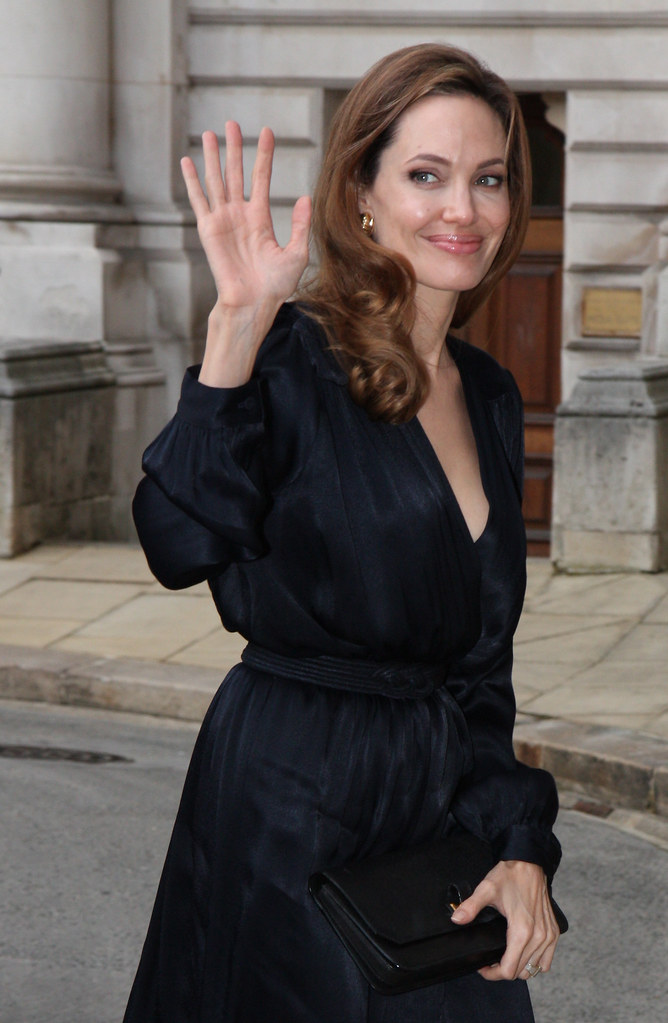
7. **Elevated Role as UNHCR Special Envoy: A Deeper Commitment**Angelina Jolie’s dedication to humanitarian causes, which began with her appointment as a UNHCR Goodwill Ambassador in 2001, deepened significantly over the subsequent decade. Her early ambassadorship saw her undertake more than 40 field missions to over 30 countries, meeting with refugees and internally displaced persons. Her stated goal was to bring “Awareness of the plight of these people,” emphasizing that “they should be commended for what they have survived, not looked down upon.” Her early field visits were so impactful that they were chronicled in her book, *Notes from My Travels*, published in 2003.
Her commitment extended to what she termed “forgotten emergencies,” crises that had fallen from public and media attention. This focus often led her to perilous war zones, including Darfur, the Syrian-Iraqi border, and Afghanistan, where she risked her own safety to meet with affected populations and understand their suffering firsthand. Her practical dedication was further demonstrated when she began taking flying lessons in 2004, aiming to personally ferry aid workers and essential supplies around the world, eventually acquiring a pilot license that same year.
After more than a decade of exemplary service as a Goodwill Ambassador, Jolie’s role within the UNHCR was formally elevated on April 17, 2012. She was promoted to the rank of Special Envoy to High Commissioner António Guterres, a newly created position that granted her expanded authority to represent the High Commissioner and UNHCR at a diplomatic level, with a primary focus on addressing major refugee crises globally. This marked a pivotal moment in her humanitarian career, acknowledging her profound impact and entrusting her with greater responsibility.
In her capacity as Special Envoy, Jolie immediately embarked on new missions. Her first visit in this elevated role took her to Ecuador, where she met with Colombian refugees, marking her third visit to the country. She also joined High Commissioner Guterres on a week-long tour of Jordan, Lebanon, Turkey, and Iraq, where they assessed the dire situation of refugees displaced by the conflict in neighboring Syria. These missions underscored her continued dedication to direct engagement and high-level advocacy on behalf of the world’s most vulnerable populations. While she resigned from the ambassadorship in December 2022, she pledged to continue her advocacy for refugees, demonstrating an unwavering commitment to this critical cause.

8. **The Maddox Jolie-Pitt Foundation: A Legacy of Conservation and Community Development**Angelina Jolie’s humanitarian vision extended beyond immediate crisis response to long-term sustainable development and conservation, profoundly influenced by her connection to Cambodia, the birthplace of her adopted son. In 2003, driven by a desire to connect him with his heritage, Jolie purchased a traditional house situated on 39 hectares in Cambodia’s northwestern province of Battambang. This property was strategically located adjacent to the Samlout national park within the Cardamom Mountains, an area critically threatened by poachers endangering its unique species.
Recognizing the severe environmental degradation and the plight of both the wildlife and the local communities, Jolie took a decisive step. She purchased the park’s vast 60,000 hectares, transforming the area into a protected wildlife reserve. This ambitious undertaking was named the Maddox Jolie Project, a direct testament to her personal investment and the inspiration drawn from her family. The project immediately focused on combating poaching and restoring the ecological balance of the region.
In November 2006, the scope of this initiative significantly expanded, leading to its renaming as the Maddox Jolie-Pitt Foundation (MJP). This expansion aimed to create Asia’s first Millennium Village, an endeavor aligned with the United Nations’ broader development goals. Jolie’s inspiration for this ambitious project stemmed from a crucial meeting with noted economist Jeffrey Sachs, the founder of Millennium Promise, at the World Economic Forum in Davos, where she had been an invited speaker in both 2005 and 2006. Their shared vision culminated in a 2005 MTV special, *The Diary of Angelina Jolie & Dr. Jeffrey Sachs in Africa*, which documented their journey to a Millennium Village in western Kenya, further solidifying her commitment.
By mid-2007, the MJP had blossomed into a thriving community. It encompassed ten villages that had previously been isolated from one another, now supporting some 6,000 villagers and employing 72 staff members. Notably, many of these employees were former poachers who had been integrated into the foundation as rangers, illustrating a successful model of community-based conservation and sustainable livelihood development. This initiative not only preserved critical wildlife habitats but also empowered local populations, transforming their relationship with the natural environment and fostering long-term stability and growth.
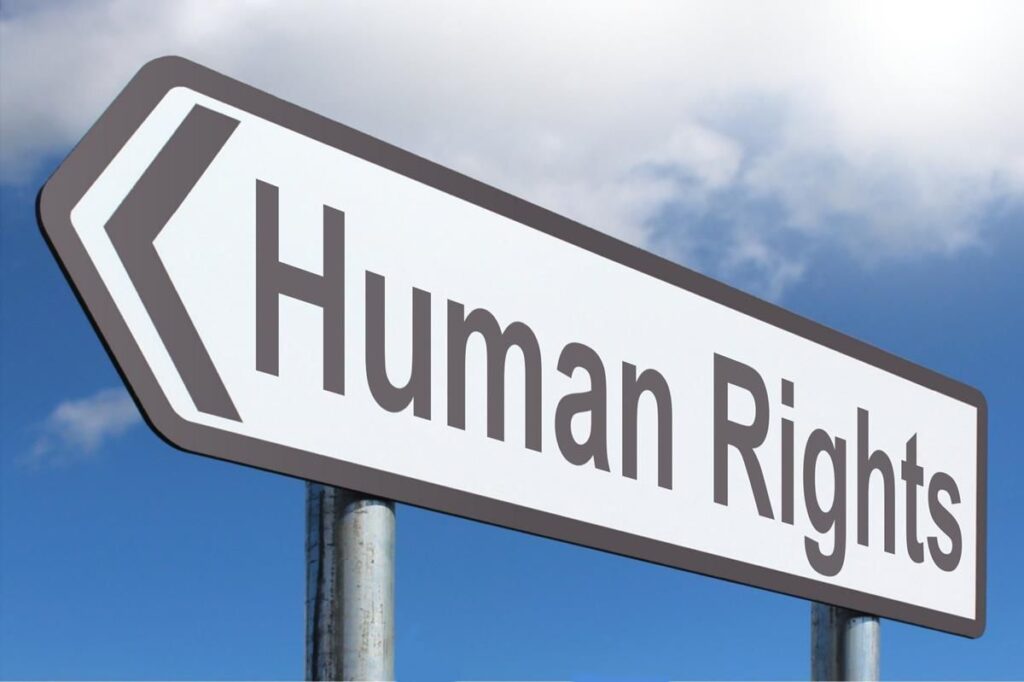
9. **Broadening Global Advocacy: Championing Human Rights and Women’s Rights**Beyond her direct engagement with refugees and conservation efforts, Angelina Jolie has consistently utilized her influential platform to advocate for a broader spectrum of global justice and human rights issues. Her work as a public figure has been marked by a clear commitment to raising awareness and driving change in areas often overlooked or under-resourced. She has become a vocal proponent for causes encompassing education, women’s rights, and the protection of vulnerable children in conflict zones, demonstrating a holistic approach to global welfare.
Jolie has often highlighted the intertwined nature of these issues, recognizing that conflict, displacement, and poverty disproportionately affect women and children. Her advocacy for women’s rights has focused on issues such as gender-based violence, sexual violence in conflict, and promoting educational opportunities for girls, viewing these as foundational to societal stability and progress. Her sustained focus on these themes has positioned her as a leading voice for gender equality and empowerment on the international stage, leveraging her diplomatic standing to amplify the voices of those most marginalized.
Her dedication to child immigration and education, as identified within the comprehensive overview of her humanitarian work, has also been a consistent theme. Jolie understands that access to education is a fundamental right and a critical tool for resilience and future prosperity for children affected by crises. She has actively supported initiatives aimed at providing learning opportunities in refugee camps and conflict-affected regions, striving to ensure that displacement does not equate to a lost generation. These efforts underscore her belief in the transformative power of education as a cornerstone of human dignity and societal reconstruction.
Through her continuous engagement, whether through field visits, diplomatic meetings, or public statements, Jolie has sought to keep human rights at the forefront of international discourse. Her consistent messaging emphasizes shared human values—”justice and equality, a chance for a life with meaning”—and the universal responsibility to assist those in need. This unwavering commitment to principles of global justice has solidified her reputation not just as an actress, but as a dedicated humanitarian whose influence extends far beyond the silver screen.

10. **Continued Cinematic Impact: From Fantasy Epics to Superhero Sagas**Even as her humanitarian work deepened, Angelina Jolie maintained her significant presence in cinema, demonstrating sustained cinematic contributions that continued to captivate global audiences. Her return to the screen in 2014 with *Maleficent*, a live-action re-imagining of Disney’s *Sleeping Beauty*, showcased her enduring appeal in fantasy. The film garnered mixed critical reception, but Jolie’s performance in the titular role was universally lauded, with critics like Sherri Linden of *The Hollywood Reporter* praising her as the “heart and soul” of the film, infusing the character with “magnetic and effortless power.” This commercial success, grossing $757.8 million worldwide, became Jolie’s highest-grossing film and solidified her appeal across diverse demographics.
Her connection to the character and the film’s success led her to reprise the role in the 2019 sequel, *Maleficent: Mistress of Evil*. While this follow-up also received mixed reviews, it performed moderately well commercially, achieving a global gross of $490 million. These ventures highlighted her ability to draw audiences to large-scale productions, reinforcing her status as a formidable force in mainstream cinema, particularly within the fantasy genre that had become increasingly popular with audiences worldwide.
Jolie further expanded her cinematic footprint by joining the Marvel Cinematic Universe, starring as Thena, a warrior suffering from post-traumatic stress disorder, in the superhero film *Eternals*. Released in November 2021, the film generated divergent responses from critics and audiences, characteristic of the evolving superhero landscape. However, her portrayal garnered specific attention, with Ann Hornaday of *The Washington Post* highlighting the “touching naivete” in Jolie’s performance. This role allowed her to engage with a massive global franchise, reaching an even wider audience and demonstrating her versatility in navigating different genres and cinematic universes.
Through these high-profile projects, Jolie not only maintained her acting career but also continued to influence the industry. Her involvement in films like *Maleficent* and *Eternals* allowed her to contribute to major blockbusters that, in their own ways, explored themes of power, identity, and global interconnectivity. These roles ensured her continued visibility and reaffirmed her status as one of Hollywood’s most recognizable and impactful actresses, even amidst her profound humanitarian commitments.

11. **Producing Broadway: The Outsiders and Expanding Creative Influence**Demonstrating a remarkable expansion of her creative influence, Angelina Jolie ventured into a new dimension of artistic contribution as a producer for the musical *The Outsiders*. This Broadway production, adapted from S.E. Hinton’s classic novel, showcased her engagement with storytelling in a different medium and genre, moving beyond the confines of film directing and acting into the live theatrical sphere. Her involvement as a producer highlights a strategic shift towards shaping narratives from a different vantage point within the entertainment industry.
Jolie’s commitment to *The Outsiders* resonated significantly within the theatrical community. Her role extended beyond a mere endorsement, indicating a genuine investment in bringing this enduring story to the stage with depth and authenticity. The production itself, which transferred to Broadway in 2024, received considerable acclaim, further solidifying its artistic merit and commercial viability within the highly competitive world of New York theater. This move showcased her dedication to impactful storytelling across different platforms.
The pinnacle of this new endeavor arrived with extraordinary recognition: *The Outsiders* won the Tony Award for Best Musical in 2024. This prestigious award not only celebrated the artistic achievements of the production but also underscored Jolie’s significant impact as a producer. It marked a new and important accolade in her multifaceted career, demonstrating her ability to identify and nurture compelling stories and bring them to life with critical success, further cementing her influence as a creative force beyond her established cinematic roles. This achievement served as a powerful testament to her expanding vision and commitment to the arts in its various forms.

12. **Acclaimed Return to Drama: Maria and Enduring Artistic Prowess**Angelina Jolie’s enduring artistic prowess was once again highlighted by her recent and critically acclaimed lead role in Pablo Larraín’s biographical film *Maria*. This drama, centered on the final days of the legendary opera singer Maria Callas, offered Jolie a profound opportunity to demonstrate her dramatic range and emotional depth, culminating in what many critics have hailed as a career-defining performance. The film’s premiere at the 81st Venice International Film Festival immediately drew widespread attention and praise for her portrayal.
Reviewers consistently lauded Jolie’s ability to embody the complex persona of Callas. Tomris Laffly of RogerEbert.com, for instance, termed it a “career-best performance,” observing that Jolie played “Callas with an ethereal presence, grasping the intense grief of the once-in-a-generation singer who’s been losing her voice.” This particular commentary speaks to her nuanced approach, showcasing not just the iconic figure but the profound human vulnerability and suffering beneath the public image. Her meticulous performance captured the essence of Callas’s internal struggles and external pressures.
Such an intense and layered performance reaffirmed her capability to anchor serious dramatic roles, distinguishing her from her more action-oriented or fantasy-based projects. Her ability to convey such deep emotion and historical resonance in *Maria* underscored her versatile talent and commitment to challenging artistic endeavors. The film not only added another significant dramatic achievement to her filmography but also garnered her another Golden Globe nomination for Best Actress, further acknowledging her profound impact on the cinematic landscape.
Angelina Jolie’s journey is a powerful testament to a life lived with extraordinary purpose, seamlessly weaving together a stellar cinematic career with an unwavering commitment to global humanitarianism. Her evolution from a compelling screen presence to a formidable advocate and thoughtful filmmaker reflects a profound dedication to using her voice and influence for the greater good. Through her roles on and off screen, she continues to inspire, challenge, and shape perceptions, leaving an indelible mark on both the worlds of entertainment and global justice. She remains a singular figure, celebrated not just for her artistry, but for her profound and enduring impact on humanity.

